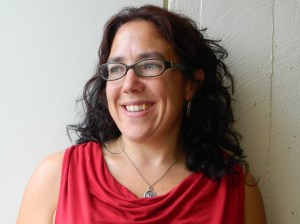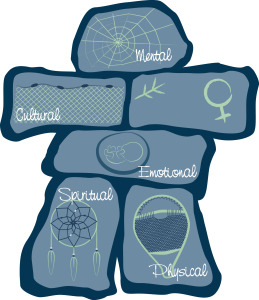Leah Levac, University of Guelph – Community Vitality Index
How can we best improve communities as a whole?
Dr. Leah Levac, a political scientist at The University of Guelph, is attempting to answer that questions through the creation of a vitality index that measures well-being.
Dr. Leah Levac is an Assistant Professor of Community Engaged Scholarship, based in the Department of Political Science at the University of Guelph in Guelph, ON, Canada. Her interdisciplinary research program seeks to build partnerships and research projects focused on the engagement of historically marginalized publics in public policy development. Her interests include women’s engagement in policy development, feminist intersectional participatory research methods, and strategies and governance structures that facilitate leadership and engagement opportunities for women with diverse social identities, particularly young women and Indigenous women. She teaches courses in public policy, civic engagement, and community engaged scholarship research methods. During her academic career, she has held research awards and grants from the Trudeau Foundation, the Social Sciences and Humanities Research Council, and the Canadian Institutes of Health Research.
Community Vitality Index
![]()
As community engaged scholars, our research uses a rigorous process that involves the community in all stages.
In 2012, we began a participatory process to create a community vitality index to track wellbeing in Happy Valley-Goose Bay, Labrador. Nearby, a multi-billion dollar hydroelectric project is underway. The dam on the Lower Churchill River will provide more power for eastern Canada, and eventually, the eastern US.
Through participatory workshops and community pilots, we worked with women in the community to create a wellbeing definition and framework, and a survey to measure wellbeing.
Through our research, we asked two key questions: What is the full impact of resource extraction projects on community wellbeing? And how can women in communities be more meaningfully included in policy decisions?
We know that natural resource extraction projects lead to community changes that have unique impacts on women’s wellbeing. However, most women are still left out of policy decisions when such projects are being considered, and wellbeing definitions often exclude women’s perspectives. Therefore, we study not only factors affecting community wellbeing from women’s perspectives, but also research methods that include the voices of diverse women in informing policy decisions.
Through the creation of the community vitality index, we began to answer both of our main research questions. We learned that wellbeing includes being able to make choices about what’s best for you and your family, and feeling accepted for your cultural knowledge. We also learned about complex interconnections. For example, having access to traditional food sources, which often depend on the river, affects physical and emotional wellbeing.
Moving forward, we will use CVI data to create a more complete picture of the community’s wellbeing, and to capture changes to wellbeing during the construction of the dam.
In the future, developing CVIs with other communities will help us learn more about how best to include diverse women in policy decisions, and about the full impacts of resource extraction projects on communities.




